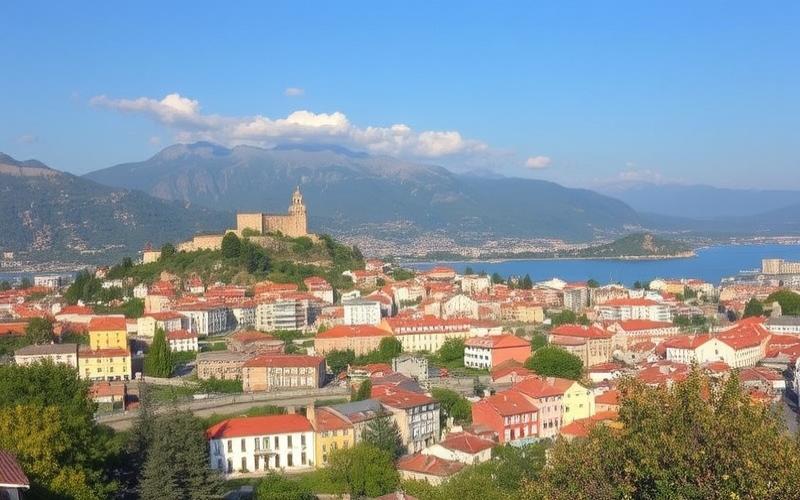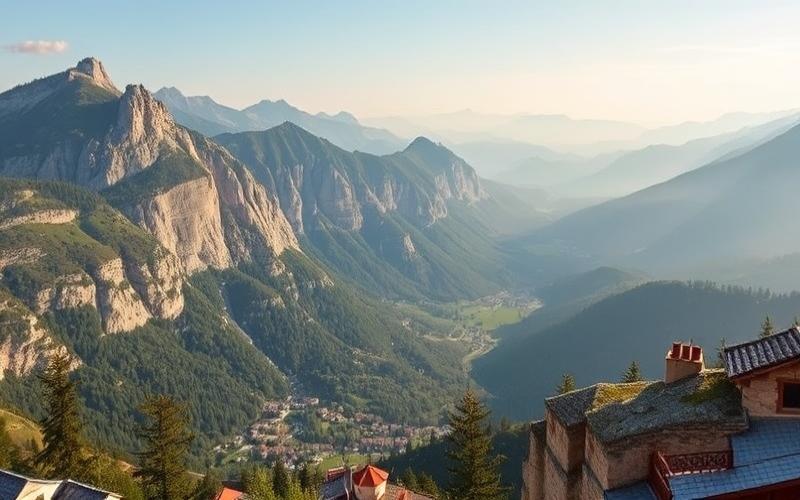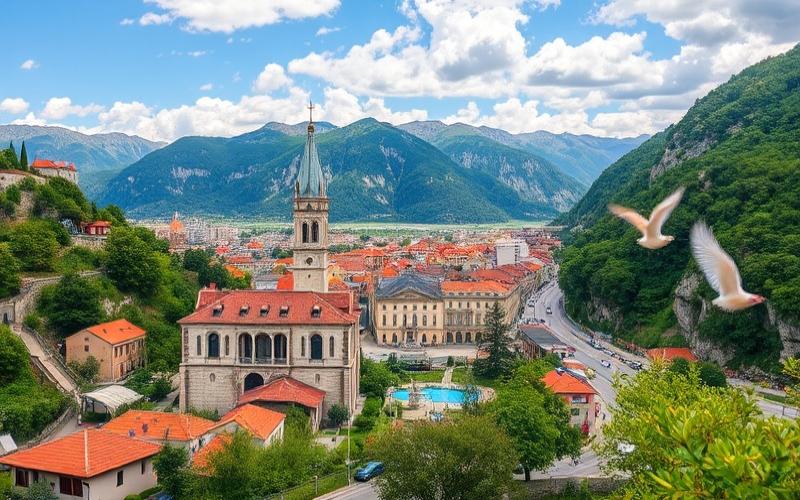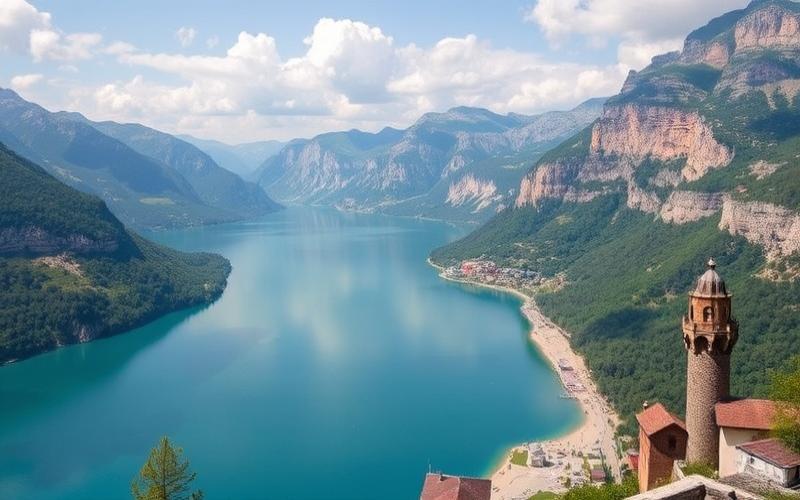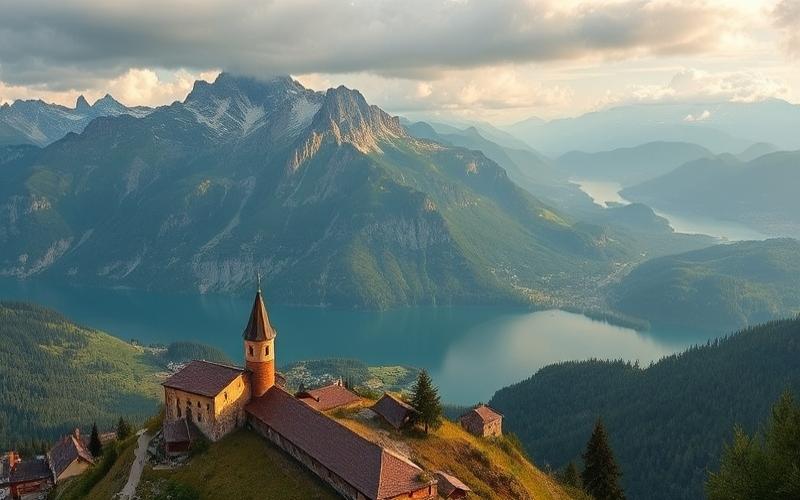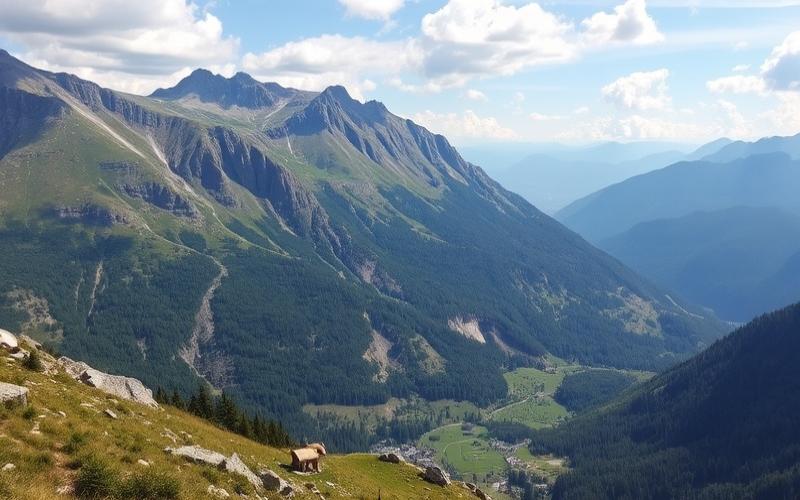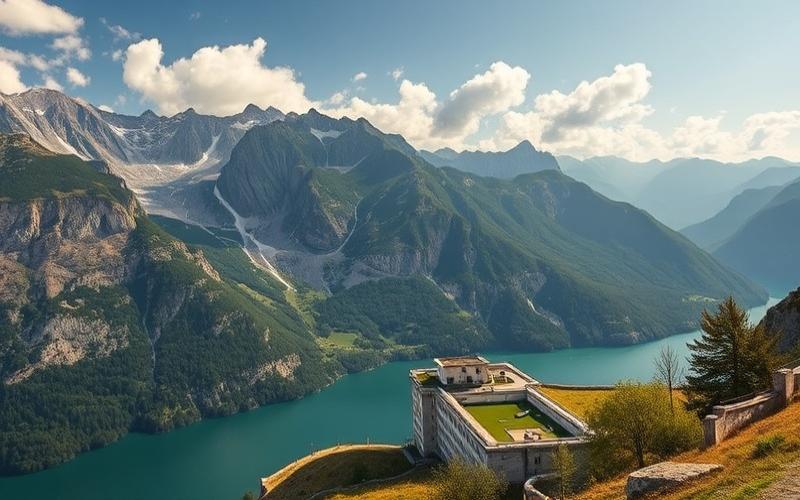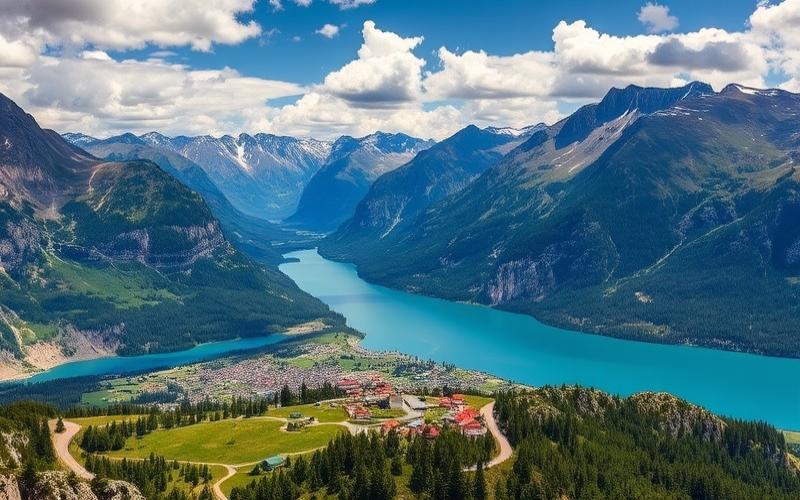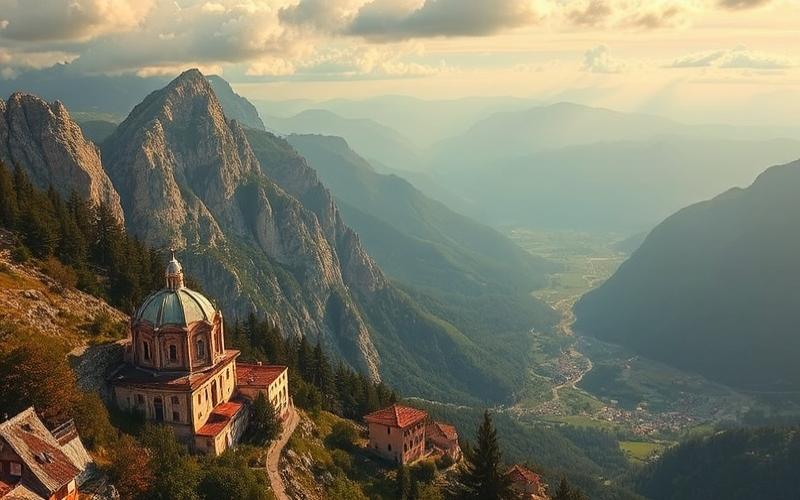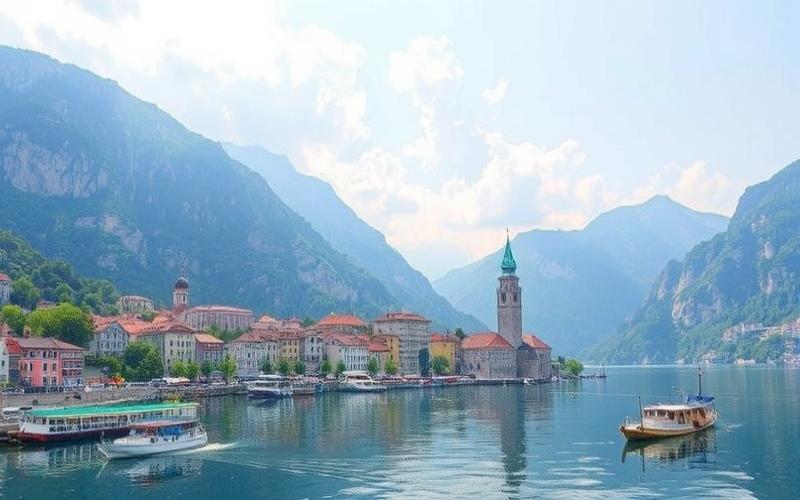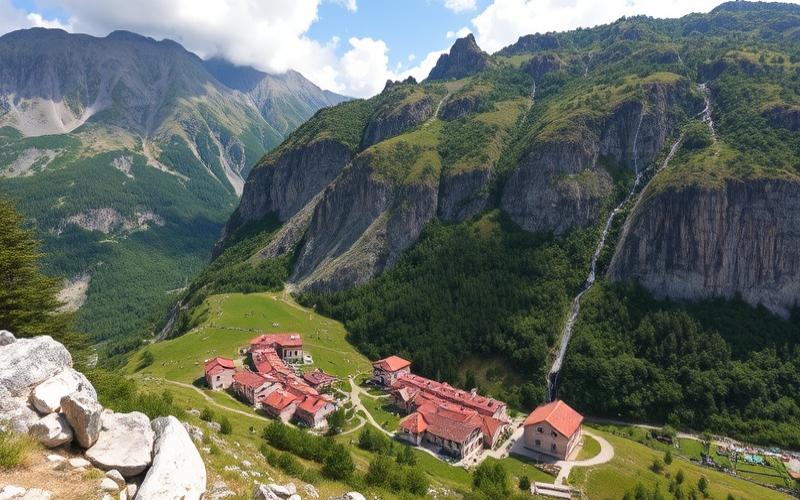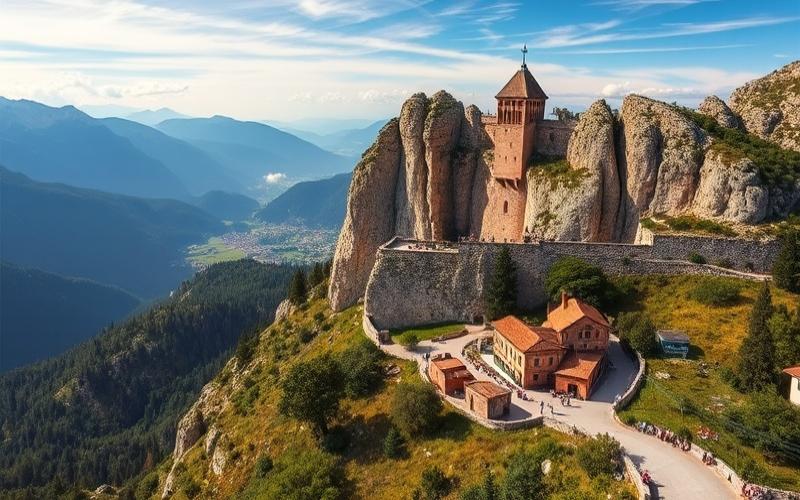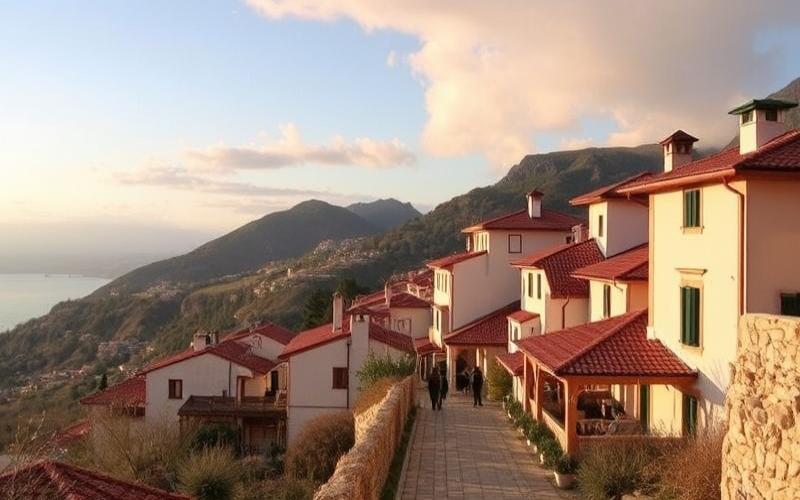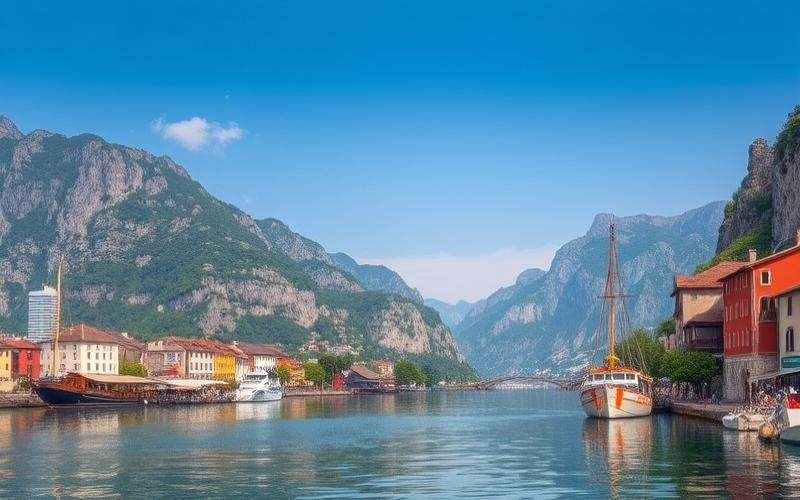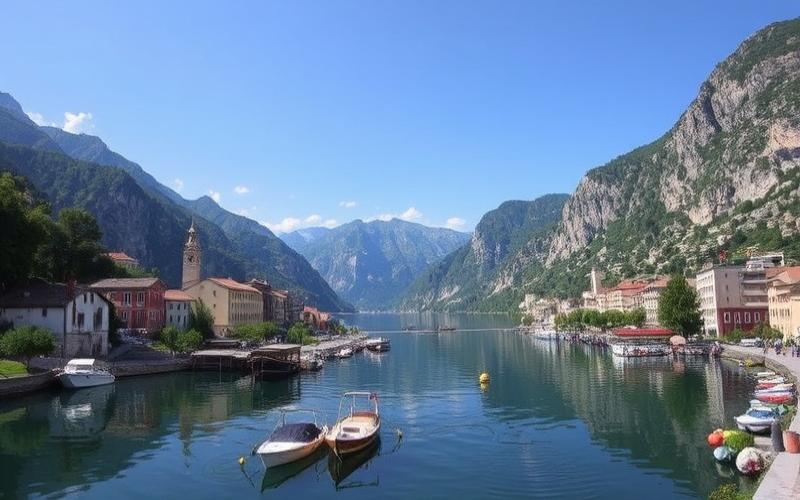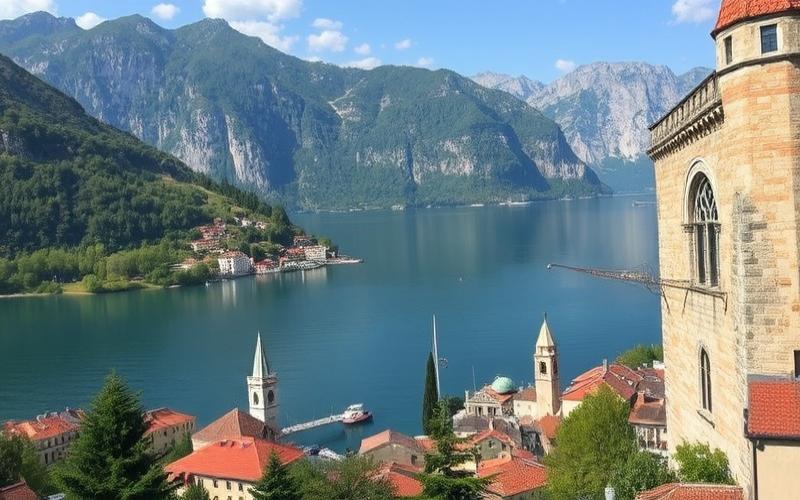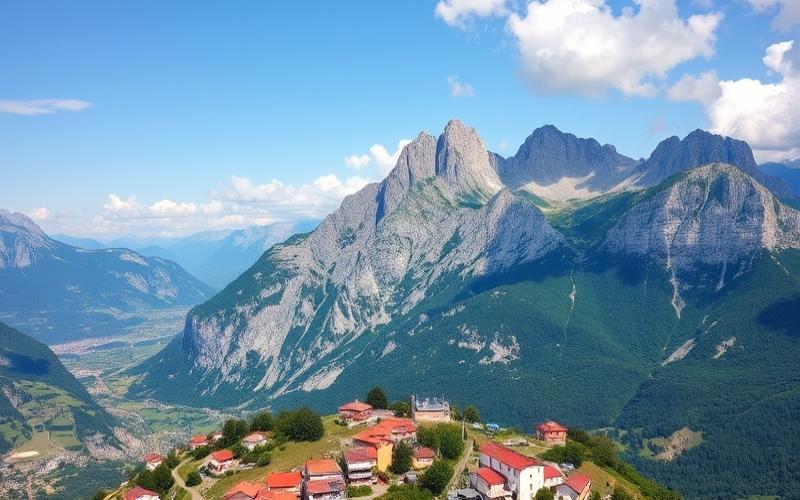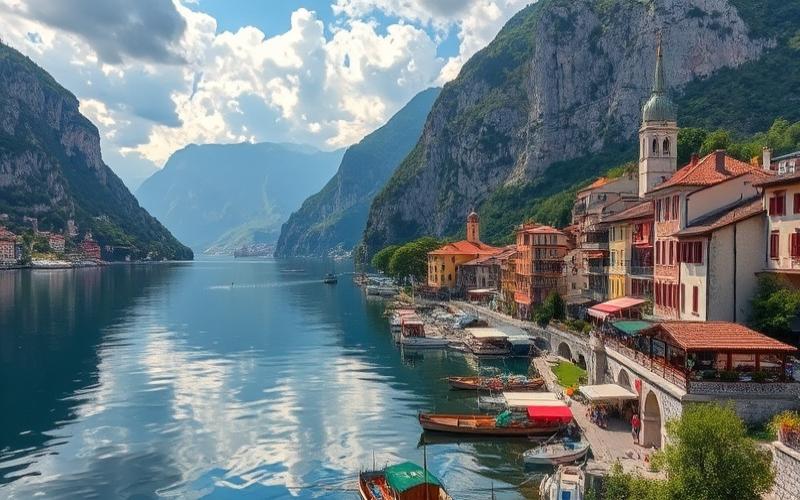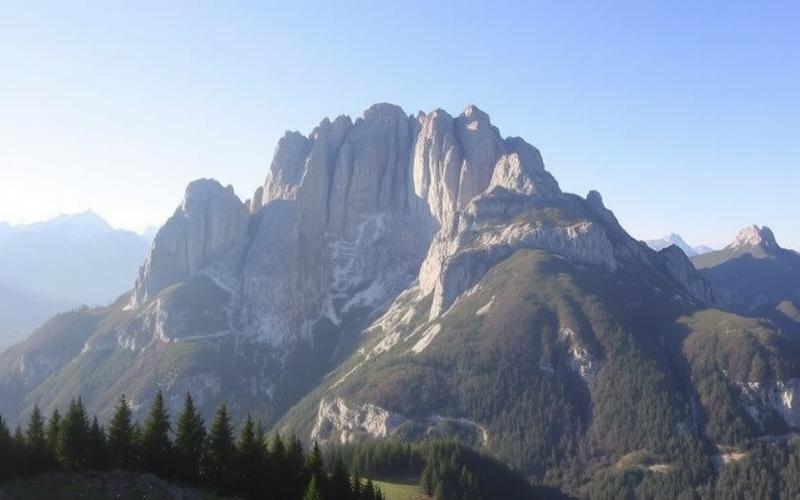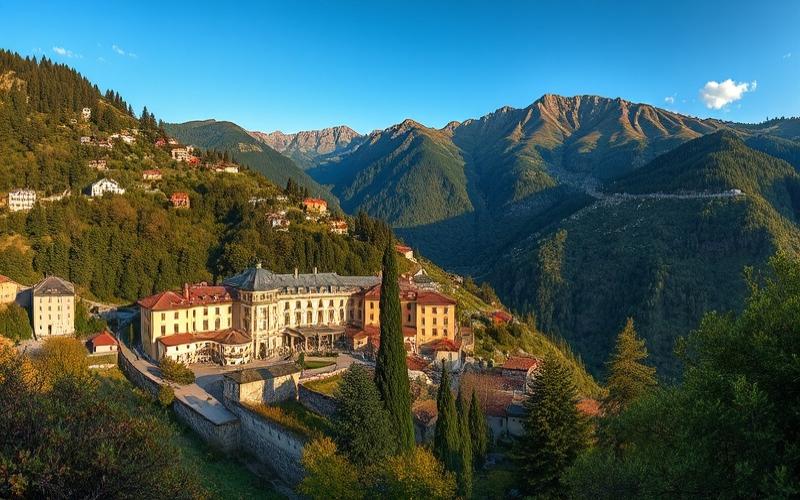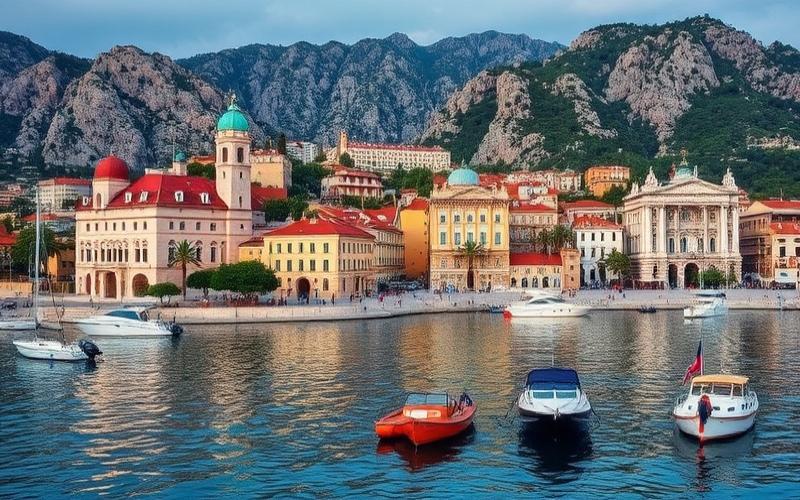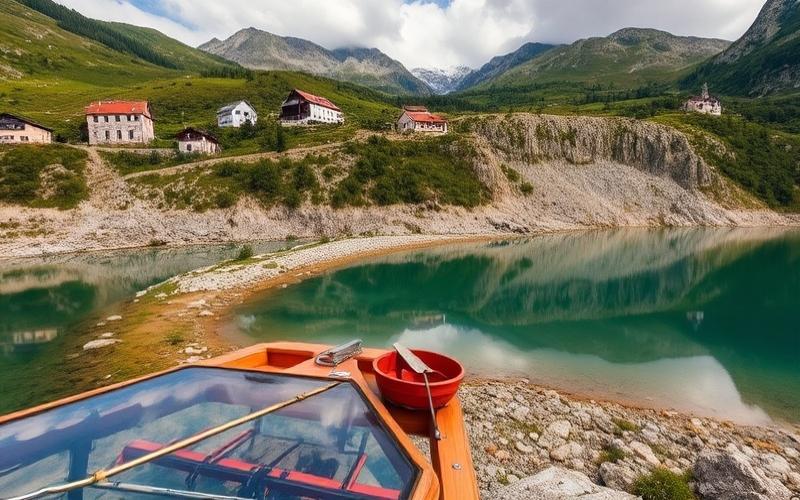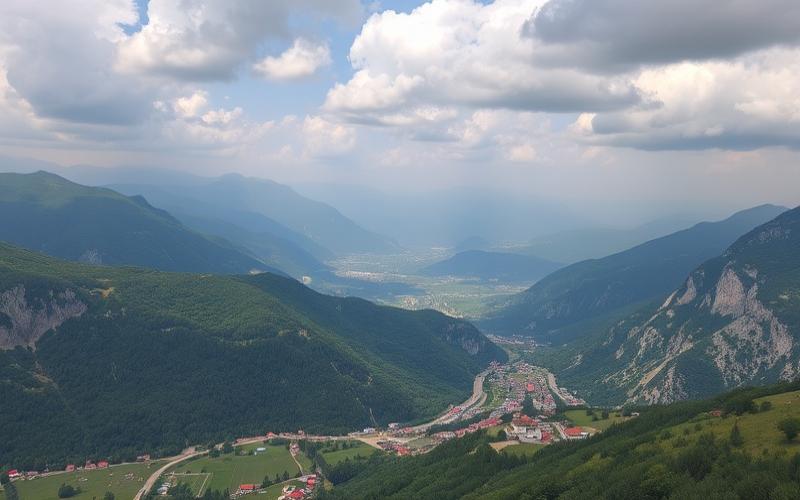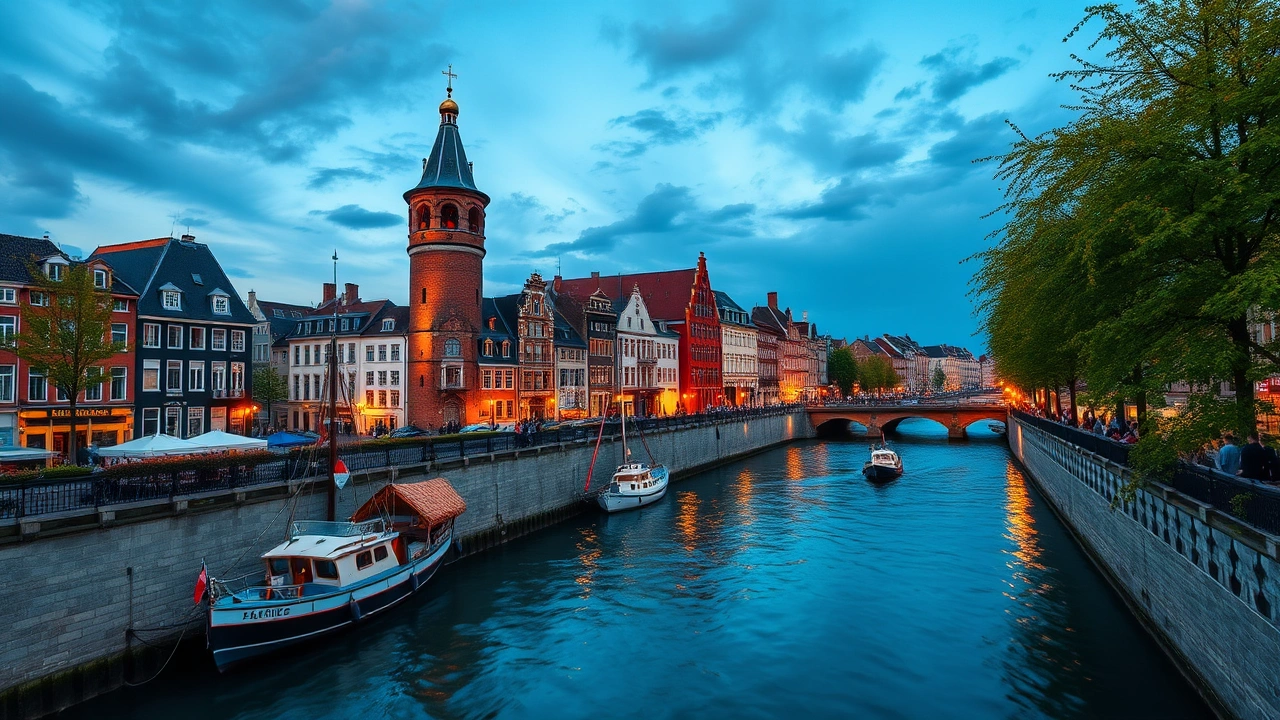
 Published on and written by Cyril Jarnias
Published on and written by Cyril Jarnias
In the heart of the Balkans, Montenegro is currently undergoing a notable real estate transformation with the emergence of “co-living spaces,” a concept that is increasingly appealing to young professionals and expatriates seeking a flexible and community-oriented lifestyle. These shared spaces, which foster interaction and creativity, are multiplying in Montenegrin cities, attracting investors and businesses eager to establish themselves in this booming region.
Between innovation and tradition, Montenegro is establishing itself as a sought-after destination for those looking to combine an idyllic setting with business opportunities, thereby redefining the local real estate landscape.
The Rise of “Co-living Spaces” in Montenegro: A Trend Among Youth
In recent years, Montenegro’s real estate market has experienced significant growth dynamics, marked by a continuous increase in prices, particularly in urban and tourist areas like Budva and Tivat. By 2025, the average price per square meter in cities reached approximately €2,420, with increases of up to +8% in popular locations such as Tivat. This surge is accompanied by a diversification of real estate offerings to meet the emerging demand for new housing models.
One notable phenomenon is the rapid rise of “co-living spaces,” which are generating growing interest among Montenegrin youth as well as young expatriates and digital nomads. The number of these spaces doubled between 2022 and 2025, growing from a handful to several dozen, primarily distributed in coastal urban centers.
Comparative Table: Real Estate Market Evolution
| Year | Average Price per m² (City) | Estimated Number of Co-living Spaces |
|---|---|---|
| 2022 | ~€1,900 | 20 |
| 2025* | ~€2,420 | >30 |
- More Affordable Cost: Sharing a space allows access to modern housing while significantly reducing monthly expenses.
- Enhanced Sense of Community: Living with other young people fosters mutual support and creates an environment conducive to cultural and social exchanges.
- Professional Opportunities: Networking facilitated by geographic proximity attracts freelancers and remote workers in particular.
- Contract Flexibility: Short-term or renewable contracts based on individual needs.
Geographic Areas Where This Trend Is Taking Hold:
- Budva: Highly attractive due to its vibrant nightlife, renowned beaches, and easy access to modern urban services.
- Tivat & Kotor: Preferred destinations for their rapid tourism development, modern infrastructure, and international connectivity (airport proximity).
- Podgorica (Capital): Attracts a growing student population thanks to its universities and diverse cultural offerings.
Major Factors Attracting Youth to These Regions:
- Central or Coastal Location
- Increased Cultural/Sports Leisure Offerings
- Growing Presence of Tech/Innovative Companies
- High-Performance Internet Connectivity Suitable for Remote Work
Cultural & Economic Impacts on Montenegro’s Real Estate Sector:
The rise of co-living contributes to modernizing Montenegro’s image among foreign investors while stimulating the urban residential construction-renovation sector. This phenomenon also promotes the emergence of a more internationally open society, where daily intercultural exchanges around shared housing are multiplying.
Furthermore, this shift encourages better urban land use—sometimes limiting excessive speculation—but can also generate local tensions related to rapid demographic renewal in certain central neighborhoods. However, the local economy directly benefits through:
- Increased Consumption (Dining/Entertainment)
- Regular Influx of Foreign Capital
- Indirect Support for Local Small Businesses
The accelerated development of co-living thus serves as a key indicator not only of real estate modernization but also societal progress for contemporary Montenegro.
Good to Know:
In Montenegro, the real estate market is seeing a notable rise in “co-living spaces,” particularly favored by young people who prefer these residences for their more affordable costs, sense of community, and networking opportunities they offer. Since 2020, the number of these spaces has increased by 25%, with a marked concentration in the cities of Podgorica and Kotor, attracting young professionals seeking a dynamic and community-oriented living environment. Key factors include rising traditional rents and a growing culture of sharing and collaboration. This phenomenon contributes to revitalizing certain urban neighborhoods while presenting challenges in terms of urban policies and integration of newcomers. Economically, it has stimulated local investments in the real estate sector, promoting diversified growth while encouraging more innovative approaches in housing construction and management.
Montenegro is currently undergoing a significant transformation of its real estate market with the emergence of upscale shared housing, a phenomenon redefining living arrangements in this Balkan gem.
Market Growth Factors
The rise of upscale shared housing in Montenegro is explained by several converging factors. The growing influx of expatriates and digital nomads, attracted by the exceptional quality of life and relatively affordable cost of living, constitutes a key driver of this trend. The country’s economic development, particularly in tourism and services sectors, has also stimulated demand for high-quality shared housing. The constant improvement of infrastructure and modernization of Montenegrin cities are making the country increasingly attractive to international residents.
Faced with rising traditional real estate prices, upscale shared housing represents an appealing alternative for those wishing to maintain a certain level of comfort without bearing the costs of an entire home alone.
Distinctive Characteristics
- Carefully designed interiors with quality materials and designer furniture
- Integrated coworking spaces, meeting the needs of modern professionals
- Included concierge, cleaning, and maintenance services
- Premium amenities like gyms, relaxation areas, and professional kitchens
- High-speed broadband internet connectivity, essential for remote workers
These shared residences are typically located in strategic positions, mainly in sought-after coastal cities like Budva, Kotor, and Tivat, offering stunning views of the Adriatic Sea or proximity to business centers like in Podgorica.
Resident Profile
| Category | Proportion | Main Motivations |
|---|---|---|
| Students | 55% | Limited budget, socialization |
| Working Professionals | 41% | Flexibility, networking, quality of life |
| Retirees/Non-working | 6% | Cost reduction, combating isolation |
The demographics of upscale shared housing in Montenegro have significantly diversified. While students still represent the majority of residents, there is a notable increase in working professionals, including couples, who choose this lifestyle for financial reasons as well as the social and practical benefits it offers. This evolution reflects a broader trend where shared housing is no longer perceived as a temporary solution but as a deliberate lifestyle choice.
Socio-economic Impact and Outlook
The emergence of these upscale co-living spaces generates positive economic spillovers for local Montenegrin communities, with job creation in associated services and revitalization of local commerce. Attractive rental yields, ranging between 5% and 7% in the most sought-after areas, are attracting increasing foreign investment.
Looking ahead, Montenegro’s upscale shared housing market shows considerable growth potential. Still relatively young compared to other European destinations, this sector is expected to continue developing, driven by the country’s growing appeal to international investors and evolving lifestyles toward greater flexibility and mobility.
Montenegro’s rental market is still relatively young and offers good growth potential for savvy investors. Yields are attractive compared to other European destinations.
This trend is part of a deeper transformation in living arrangements, where well-being and quality of life take precedence over mere ownership of private space, reflecting the new priorities of an increasingly mobile and connected population.
Good to Know:
The rise of upscale shared housing in Montenegro is fueled by increased tourism and an influx of expatriates drawn to the exceptional living environment. Faced with the excesses of the traditional real estate market, these spaces offer attractive services such as cleaning, high-speed internet, and luxurious common areas, often strategically located near tourist areas and business centers. Young professionals and digital nomads seek these residences not only for their convenience but also for their community atmosphere. This phenomenon has a significant socio-economic impact on local communities, providing new employment opportunities but also contributing to rising real estate prices. With growing demand, prospects for this sector remain promising, despite challenges related to regulation and accessibility for local populations.
The rise of shared spaces and the growing power of the digital community are profoundly transforming Montenegro’s real estate market, particularly with the rapid emergence of “co-living spaces.” This trend meets the increasing needs for flexibility, accessibility, and community living sought by students, young professionals, digital nomads, and remote workers.
- Significant reduction in living costs through all-inclusive pricing (rent, utilities, wifi) and easy access to modern furniture without initial investment.
- Increased flexibility via short-term or individualized contracts allowing adaptation of stays according to personal or professional needs.
- Creation of dynamic communities fostering intercultural exchanges, professional support, and lasting friendships.
- Access to complete infrastructure (equipped kitchens, shared lounges, coworking rooms) that simplifies daily life while boosting productivity.
| Benefit | Description |
|---|---|
| Cost Reduction | Rent including services/utilities; savings on furnishings |
| Flexibility | Monthly/modifiable contracts; adaptation to nomadic rhythms |
| Community | Collective living conducive to networking & personal/professional development |
| Optimized Spaces | Combination of private + common spaces adapted to new uses |
Impact of Digital Technology on Co-living Spaces:
Specialized digital platforms play a key role in the expansion of Montenegrin co-living. They facilitate:
- Quick online booking with transparent contract management,
- Secure digital payments,
- Communication between residents via dedicated apps to organize events or manage common spaces,
- Digital tracking of services (shared cleaning, maintenance).
The digital community also connects residents even before their arrival through private forums or exclusive social groups. This strengthens the sense of belonging from the moment of move-in.
Concrete Examples in Montenegro:
Playworking Montenegro is emblematic: designed for digital nomads & remote workers seeking work/life balance. It offers ultra-fast fiber optic (300 Mbps), inspiring panoramic views, and indoor/outdoor common areas designed to encourage informal meetings as well as collaborative sessions. Flexible schedules adapt to individual rhythms while each resident benefits from the active support of a vibrant digital community.
Another recent example: Coliving Frilingue Montenegro, which specifically targets international profiles wishing to combine flexible work with immersive local experience. The deep integration of digital platforms enables smooth administrative and social management—each member easily accesses both logistical and community resources from their smartphone.
In summary, the co-living boom in Montenegro is redefining not only how people live but also how they work and socialize. Thanks to these real estate innovations supported by collaborative digital technology, the country is now attracting a new mobile generation eager for flexibility as well as enriching collective experiences.
Good to Know:
In Montenegro, the rise of “co-living spaces” is revolutionizing the real estate market by combining shared spaces and digital community to offer modern, economical residential solutions. These spaces significantly reduce living costs through shared rents and flexible contracts that adapt to tenants’ needs, thereby promoting greater freedom. Recent projects like ‘Living Space Montenegro’ illustrate this trend well, integrating digital management platforms that simplify site administration and increase their appeal. Residents also benefit from an active community through dedicated apps facilitating interactions and events, enriching the cohabitation experience. These technological innovations and community approach reinforce interest in “co-living spaces,” particularly attracting young professionals and digital nomads seeking a flexible and dynamic living experience in Montenegro.
Disclaimer: The information provided on this website is for informational purposes only and does not constitute financial, legal, or professional advice. We encourage you to consult qualified experts before making any investment, real estate, or expatriation decisions. Although we strive to maintain up-to-date and accurate information, we do not guarantee the completeness, accuracy, or timeliness of the proposed content. As investment and expatriation involve risks, we disclaim any liability for potential losses or damages arising from the use of this site. Your use of this site confirms your acceptance of these terms and your understanding of the associated risks.

